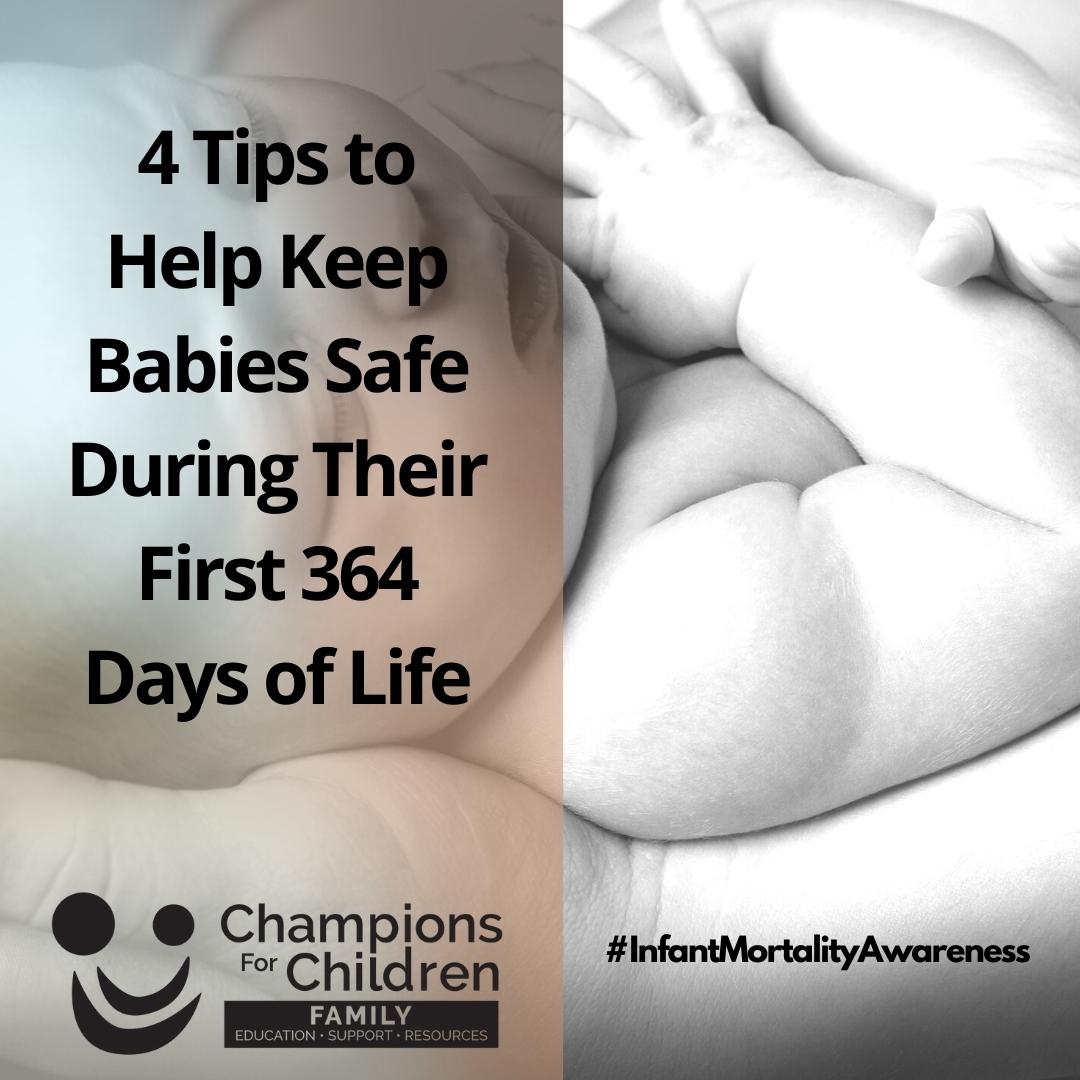4 Tips to Help Keep Babies Safe
During Their First 364 Days of Life

In Florida in 2019, 1,342 infants died before reaching their first birthday, an infant mortality rate of 6.1 per 1,000 live births. In Hillsborough county, that rate hikes up to 7.2 per 1,000 live births. Infant mortality is defined as death occurring during the first 364 days of life. Some of the leading causes of preventable infant death in Hillsborough County are unsafe sleep, shaken baby and unsafe caregivers.Knowledge of infant safety is the key to keeping children safe. Here are 4 tips to help keep babies safe during their first 364 days of life.
4 Tips to Keep Babies Safe
1. Placing baby on his or her back to sleep
Safe sleeping habits for your baby can reduce the likelihood of infant death. Make sure you or anyone caring for your baby are following the ABC’s of safe sleep. Your baby should sleep Alone – without any blankets, toys or people, on their Back and in their Crib, bassinet or pack-n-play. The safest place for your baby to sleep is in the same room as your or the person caring for them, but not in a co-sleeping environment. Following this simple acronym will help you remember how to keep your baby safe while sleeping and reduce the risk of SIDS. Another way Healthy Families helps to reduce the risk of infant mortality is by providing pack-and-plays to their client families who don’t have a safe place for their child to sleep.
2. Breastfeeding Baby and Supporting a Mother’s Choice to Breastfeed
According to the American Academy of Pediatrics (AAP) breast milk is the best nutrition for infants. Children who are breastfed are associated with a 50% reduction in risk of infant mortality. Breast milk helps babies fight off infections, improves breathing and swallowing techniques, and increases awareness in moms. Breastfeeding is a learned activity and moms who choose to breastfeed may need support to get started and continue. The best techniques and tricks can be best taught by a highly trained and certified lactation consultant. Champions’ lactations consultants can help give moms the support they need to continue breastfeeding. For inquiries regarding breastfeeding support, call our abcProgram at 813-673-4646 ext. 1127.
3. Staying Calm When Baby is Crying
It’s important for parents and caregivers to understand that babies won’t be able to communicate their needs for quite some time. This may cause the baby to cry non-stop with no end in sight. When this happens, it’s okay to walk away to calm your frustration before tending to the baby. Shaken baby syndrome usually occurs when a parent or caregiver severely shakes a child in frustration or anger, often because the child won’t stop crying. Tragically, permanent brain damage or death may result.
4. Knowing the Signs of Post-Partum Depression
Everyone is familiar with the joy a new life brings, but what many don’t expect is the feeling of depression that can hit after a mom has a baby. Postpartum depression commonly includes depressed mood or severe mood swings, excessive crying, difficulty bonding with your baby, intense irritability and anger, and recurrent thoughts of death or suicide. If you are experiencing postpartum depression, call your doctor to schedule an appointment. If you’re having thoughts of suicide, call the national the National Suicide Prevention Line at 800-273-TALK (1-800-273-8255).
Champions for Children work to support families to ensure they have the resources and knowledge they need to be the best parent they can be. We also work to educate the community about ways to keep children safe. You can be an advocate for keeping children safe and reducing the infant mortality rate by sharing this information about how to keep babies safe with your friends, colleagues, and family members.
Links to Resources:
Help with Postpartum Depression
